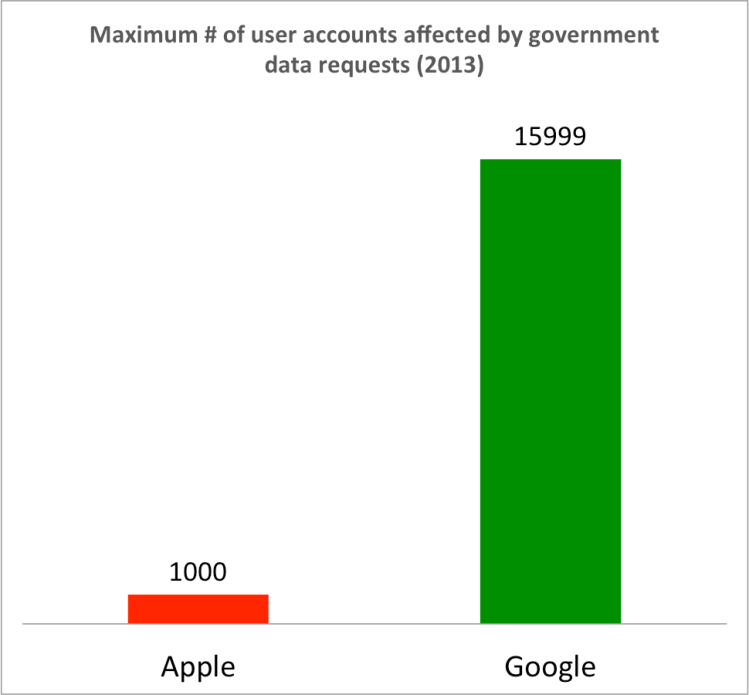Apple’s Tim Cook made a rare swipe at his competitors this week, claiming that he was “offended” by the lax privacy policies of Internet companies. Apple, he argued, doesn’t need to collect as much personal data for the prying eyes of advertisers and government spies, because their true customer is the user. Customers pay money for most of Apple’s products, unlike the Internet companies, such as Google and Facebook.
Apple therefore doesn’t worry about getting a warrant from the National Security Agency to hand over their users’ call logs and the content of emails, because such information is encrypted between users, and hidden from the company.
The data appears to support this fact. In 2013, the NSA permitted Internet companies to disclose the number of users they gave up information on, reported in bands of 1,000 accounts. Google gave up information on a maximum of 16,000 users, while Apple gave up info on only 1,000.
Apple, of course, can make this claim because it makes so much money on the hardware it sells. Not everyone can afford an iPhone, especially in poorer nations. Google’s Android is the most popular operating system in the world, with about 51% of the market in 2013, compared to Apple’s 41%.
It remains to be seen whether Apple can ever make a phone that’s affordable to everyone. And if it can’t, then it forces us into a difficult decision between privacy and affordability. There are important benefits to an ad-based Internet, and we should acknowledge these in the national discussion on privacy.
VentureBeat's mission is to be a digital town square for technical decision-makers to gain knowledge about transformative enterprise technology and transact. Learn More

